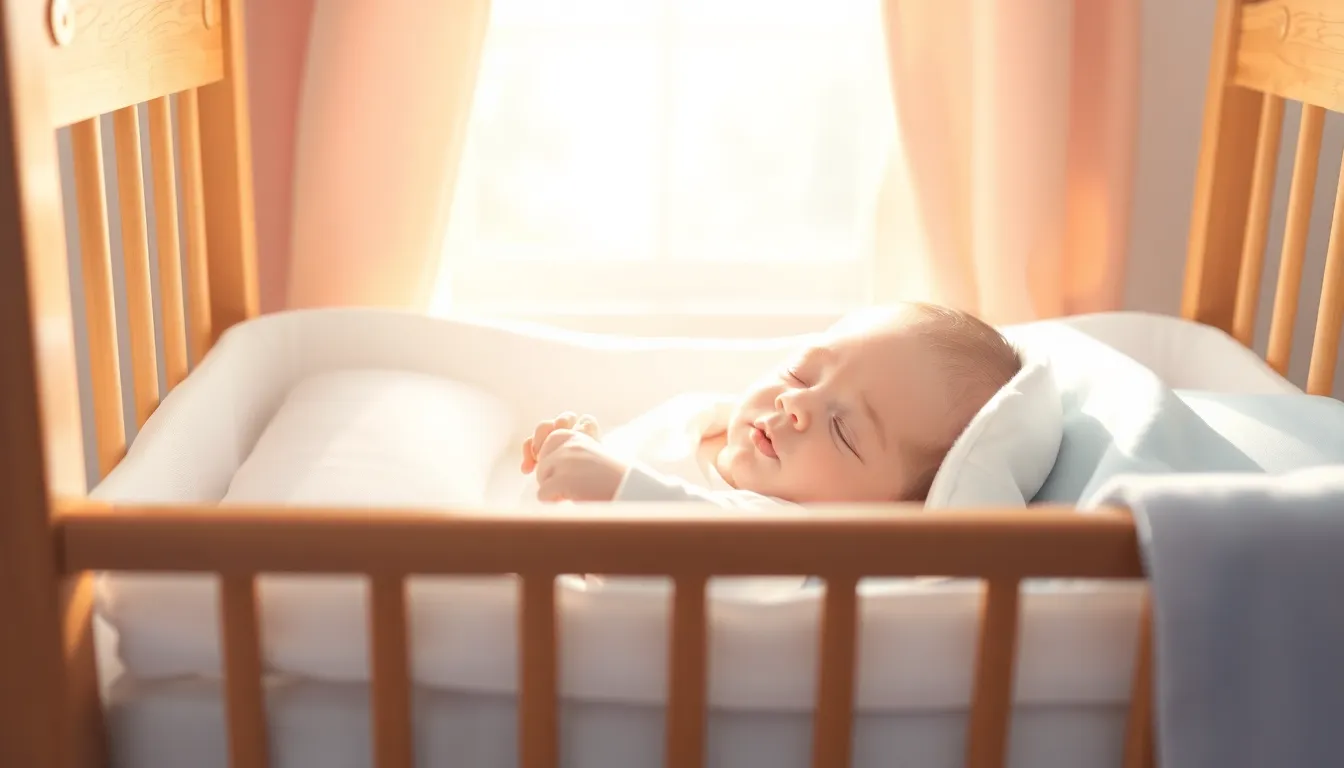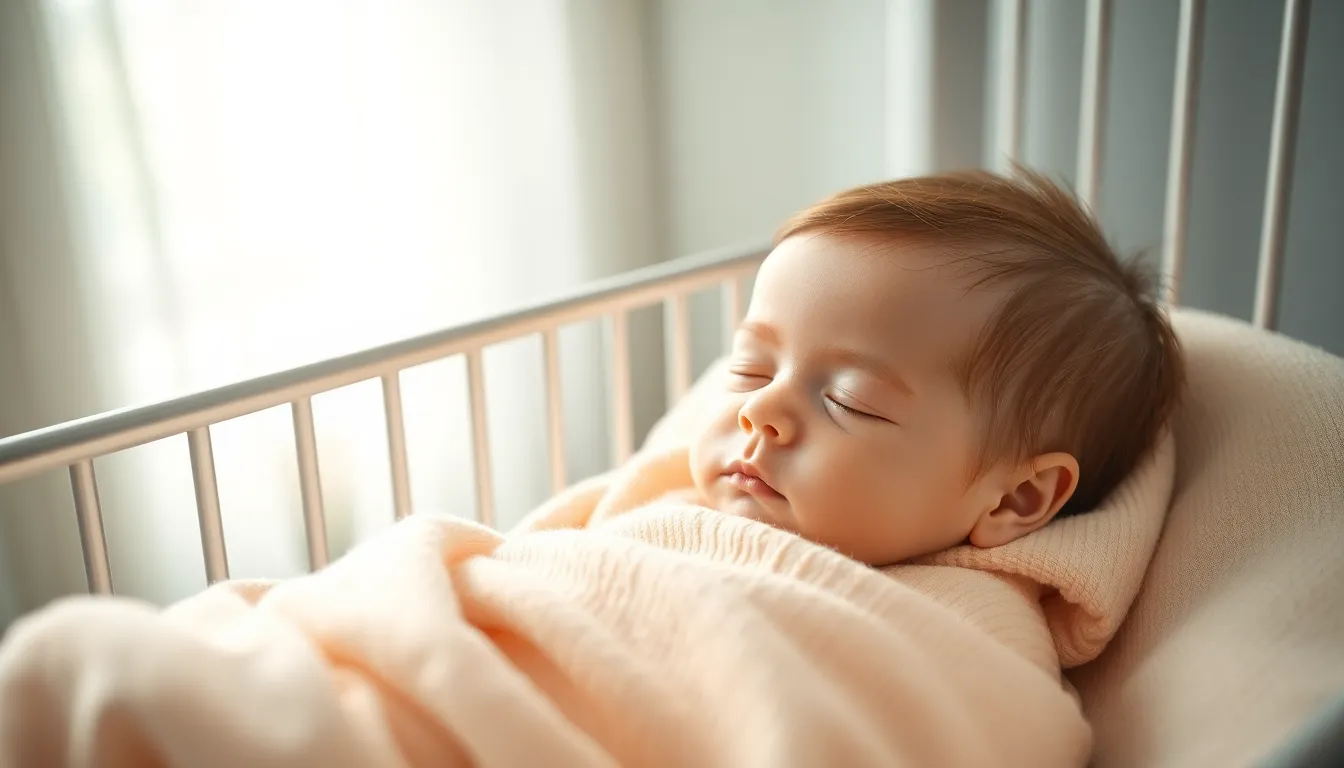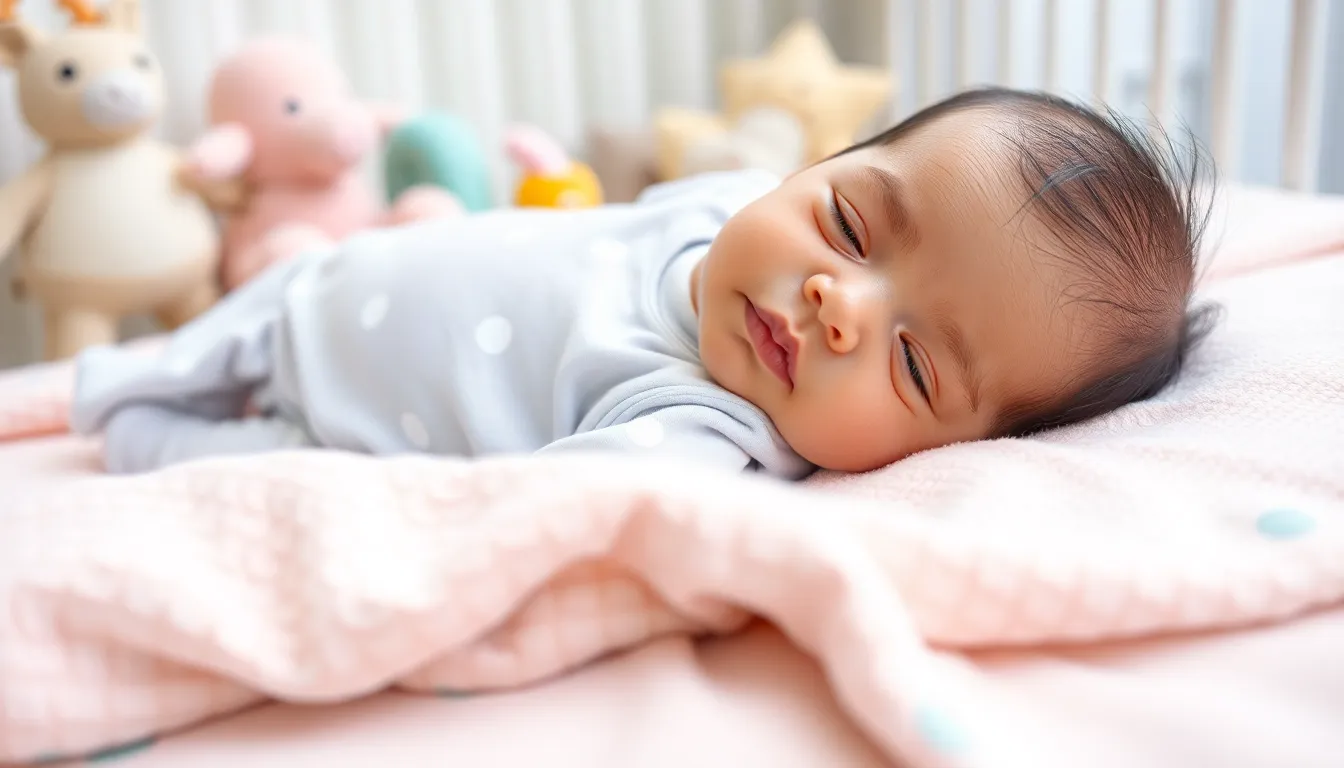Table of Contents
ToggleNewborns are the ultimate masters of surprise, often leaving parents scratching their heads in disbelief. One moment, they’re peacefully snoozing, and the next, they appear wide-eyed and alert, making you wonder if you’ve accidentally adopted a tiny owl. So, do newborns really sleep with their eyes open?
Understanding Newborn Sleep Patterns
Newborn sleep patterns often perplex parents due to their unique behaviors. Observing how babies sleep provides insights into their development.
What Is Normal Sleep for Newborns?
Normal sleep for newborns includes periods of deep sleep and active sleep. During deep sleep, babies experience slower brain activity and relaxed muscles. Active sleep features rapid eye movement, or REM, indicating dreams and brain development. Newborns typically spend about 16 to 18 hours a day sleeping, but this occurs in short bursts of 2 to 4 hours at a time. During this time, they may appear to rest with their eyes partly open, leading to confusion for caregivers. This sleep behavior is common and generally harmless, reflecting their developing nervous systems.
How Much Sleep Do Newborns Need?
Sleep requirements for newborns vary, but they usually need around 14 to 17 hours daily. Some may require up to 18 hours, especially during growth spurts. Sleep occurs in cycles that last approximately 50 to 60 minutes, with interruptions for feeding or diaper changes. Newborns rely on caregivers to help establish a sleep routine, which contributes to their overall well-being. Ensuring a conducive sleep environment supports healthier sleep patterns. Understanding these needs aids parents in nurturing their child’s growth.
Do Newborns Sleep with Their Eyes Open?



Newborns sometimes appear to sleep with their eyes open, which can confuse parents. This unusual behavior may lead to many questions about their sleep patterns.
Common Myths and Misconceptions
Many caregivers believe newborns sleep with their eyes fully open. In reality, the eyes may flutter or remain slightly open during sleep phases, particularly in REM sleep. Some think that open eyes signify distress or discomfort, but this isn’t necessarily true. Open eyes can occur naturally while the baby’s nervous system matures. It’s essential for parents to remember that this behavior is generally harmless. Education on typical sleep patterns can help dispel myths that surround newborn behaviors.
Reasons Why Newborns May Sleep with Eyes Partially Open
Newborns can sleep with their eyes partially open due to muscle tone and reflexes. Limited control over their eyelids means that occasionally, they do not close completely. Another reason includes the transition between sleep stages. During active sleep, their eyes may move beneath the eyelids, creating the appearance of being partially open. Additionally, environmental factors such as light can occasionally influence how their eyes appear during sleep. Understanding these reasons can reduce parental anxiety concerning normal sleep variations.
Signs of Healthy Sleep in Newborns
Healthy sleep in newborns manifests through various observable signs. Recognizing these signs helps parents ensure their babies get adequate rest.
Recognizing Sleep Cues
Newborns display specific cues when they feel tired. They may rub their eyes, yawn, or become fussy. An infant might also turn their head away from visual stimuli or lose interest in surroundings. These indicators signal the need for sleep. Parents should observe these behaviors closely to establish appropriate sleep routines.
Distinguishing Between Sleep and Awake States
Differentiating between sleep and awake states in newborns requires attention to their body language. A sleeping newborn typically has relaxed limbs and steady breathing. Active movement or loud sounds from the infant indicates wakefulness. Open eyes during sleep often occur in REM cycles, characterized by eye fluttering. Recognizing these differences promotes a better understanding of a newborn’s sleep patterns and needs.
Addressing Parental Concerns
Newborn sleep behaviors can raise questions for parents. Understanding these behaviors eases concerns.
When to Consult a Pediatrician
Consult a pediatrician if a newborn frequently sleeps with slightly open eyes. Persistent open eyes may suggest an underlying issue. Look for signs like eye redness, excessive drooping, or irritability. If these accompany unusual sleep patterns, professional guidance is vital. Conversations about sleep behaviors should involve noting frequency and duration. Documenting observations helps health professionals provide tailored advice. Proactive communication with a pediatrician ensures the baby’s overall well-being remains a priority.
Tips for Promoting Better Sleep
Promote better sleep by establishing a consistent sleep environment. Keep the room dim and quiet during sleep times. Dress the newborn in comfortable clothing that suits the temperature of the room. Recognize sleep cues such as yawning or fussiness to create timely sleep routines. Hold the baby gently to provide comfort before sleep. Avoid stimulating activities just before bedtime. Create a calming bedtime ritual that prepares the baby for rest. This encourages smoother transitions between wakefulness and sleep.
Understanding newborn sleep behaviors can help parents navigate the early days of parenthood with confidence. While it may be unsettling to see a newborn with eyes slightly open, this is typically a normal part of their sleep cycle. Recognizing the signs of healthy sleep and establishing a calming routine can greatly benefit both the baby and caregivers.
By being attentive to sleep cues and consulting with health professionals when needed, parents can ensure their little ones receive the rest they need for proper development. Embracing the unpredictability of newborn sleep patterns is key to fostering a nurturing environment that supports their growth and well-being.







